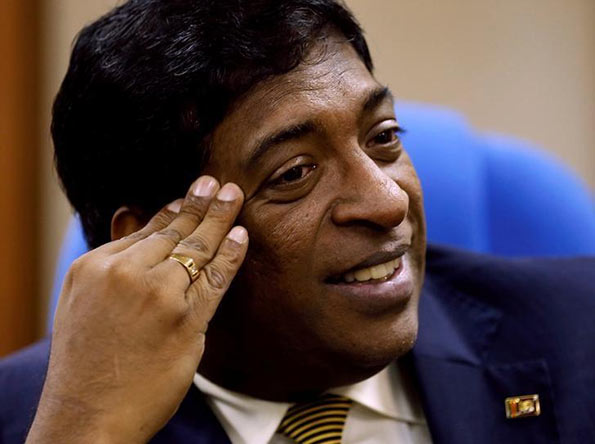Sri Lankan reforms aims to simplify tax, increase base, compliance -minister

Sri Lanka’s new government is drafting reforms aimed at simplifying taxes, widening the tax base and increasing compliance, Finance Minister Ravi Karunanayake said on Wednesday.
The International Monetary Fund (IMF), which disbursed the first tranche of a $1.5 billion, three-year loan in June, has repeatedly asked the south Asian country for reforms to raise tax revenues.
The island nation’s tax revenue has steadily declined to 10.2 percent of gross domestic product (GDP) in 2014 from around 20 percent in the early 1990s as successive governments aimed at populist measures amid a 26-year war.
Karunanayake, speaking to Reuters at the island nation’s parliament, said the new tax reforms will be implemented in the near future, without elaborating on the time frame.
“The reforms are aimed at more simplified taxes, bigger tax base and higher compliance,” he said in an interview.
Similar tax reforms were held back by the last government headed by former President Mahinda Rajapaksa even after the end of the war as the measures were extremely unpopular.
Karunanayake, the finance minister since President Maithripala Sirisena took office in January 2015, said he still believes this year’s revenue target could be reached despite two Supreme Court rulings that have prevented the implementation of a 4 percent hike in value-added tax (VAT).
“The other revenues have gone up sufficiently in order to condensate the fall. So there is no slippage and we will ensure that we basically achieve (the targets),” he said.
The IMF in June said a return to fiscal consolidation, targeting a reduction in the overall fiscal deficit to 3.5 percent of GDP by 2020, is the linchpin of the reform program it agreed for the $1.5 billion loan.
The global lender has urged Sri Lanka to give priority to enhance revenues through the implementation of new tax legislation, eliminate exemptions, build capacity in revenue administration and tighten expenditure management.
It has also urged the country to eliminate tax exemptions, and to introduce a new Inland Revenue Act in March 2017.
Sri Lanka’s tax revenue in the first seven months jumped 23 percent to 769.8 billion rupees ($5.29 billion) compared with last year, the latest finance ministry data showed on Monday.
Economists and analysts, however, have varied on the government meeting this year’s budget deficit target of 5.4 percent of the GDP as agreed with the IMF.
Karunanayake said the country will achieve a 6.5 percent growth this year, up from the last year’s 4.8 percent despite three monetary policy tightening measures since December.
(Reuters)
Latest Headlines in Sri Lanka
- Sri Lanka President says true independence lies in economic freedom, unity February 4, 2026
- Sri Lanka grants special presidential pardon to 49 inmates February 4, 2026
- President Anura Kumara Dissanayake’s 78th National Independence Day message February 4, 2026
- Sri Lanka moves to strengthen fight against money laundering and terror financing February 3, 2026
- L.S.P. Jayaratne approved as Auditor General by Constitutional Council February 3, 2026



Please eliminate exemptions by making our law makers like the Finance Minister taxable with a monthly income and allowances of Rs 100000 or so free electricity costing Rs 100000 car permit every 4 years 4 million Rupees also by not exempting from tax two thirds of our work force the government servants who most of them who draw over over 50000 Rupees per month should pay tax like any other person in Sri Lanka but they are exempted from tax for which they hardly do any work if this is done our VAT can be reduce to 5% and next budget can be a surplus budget